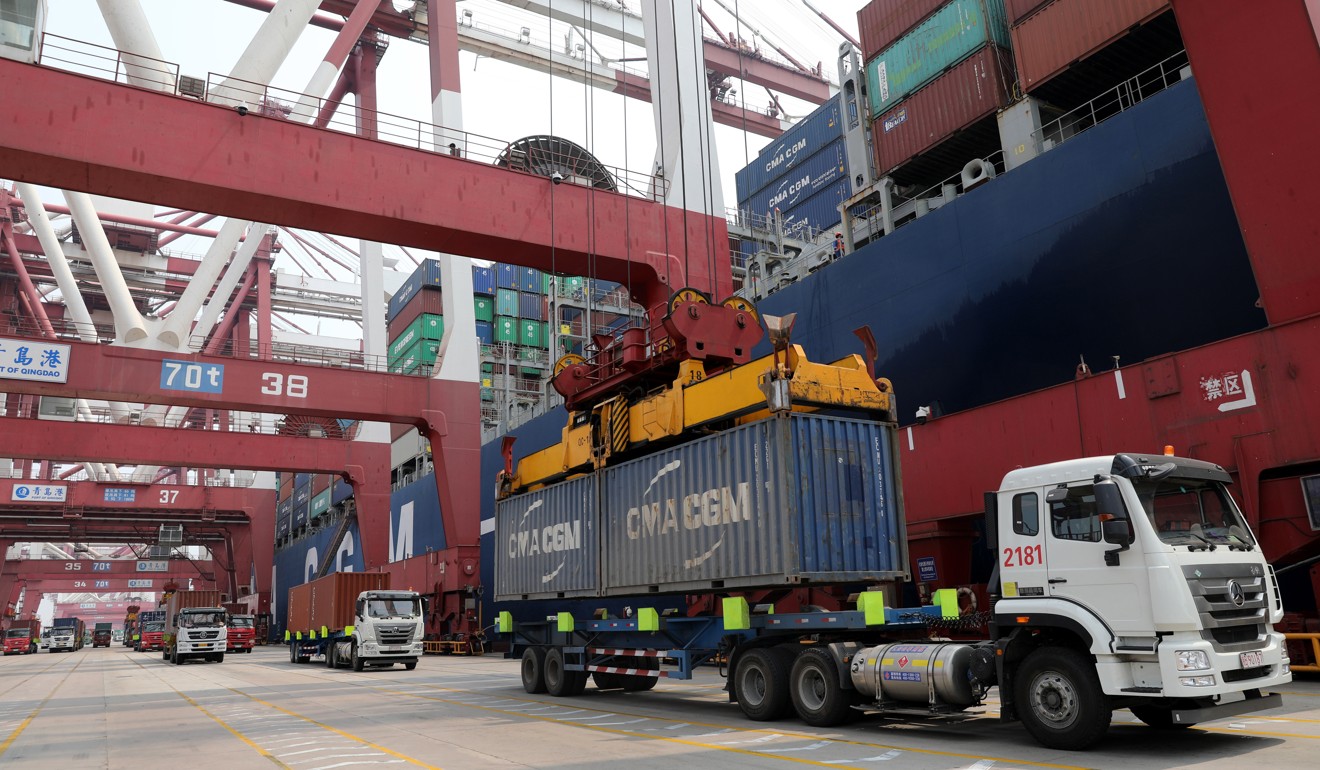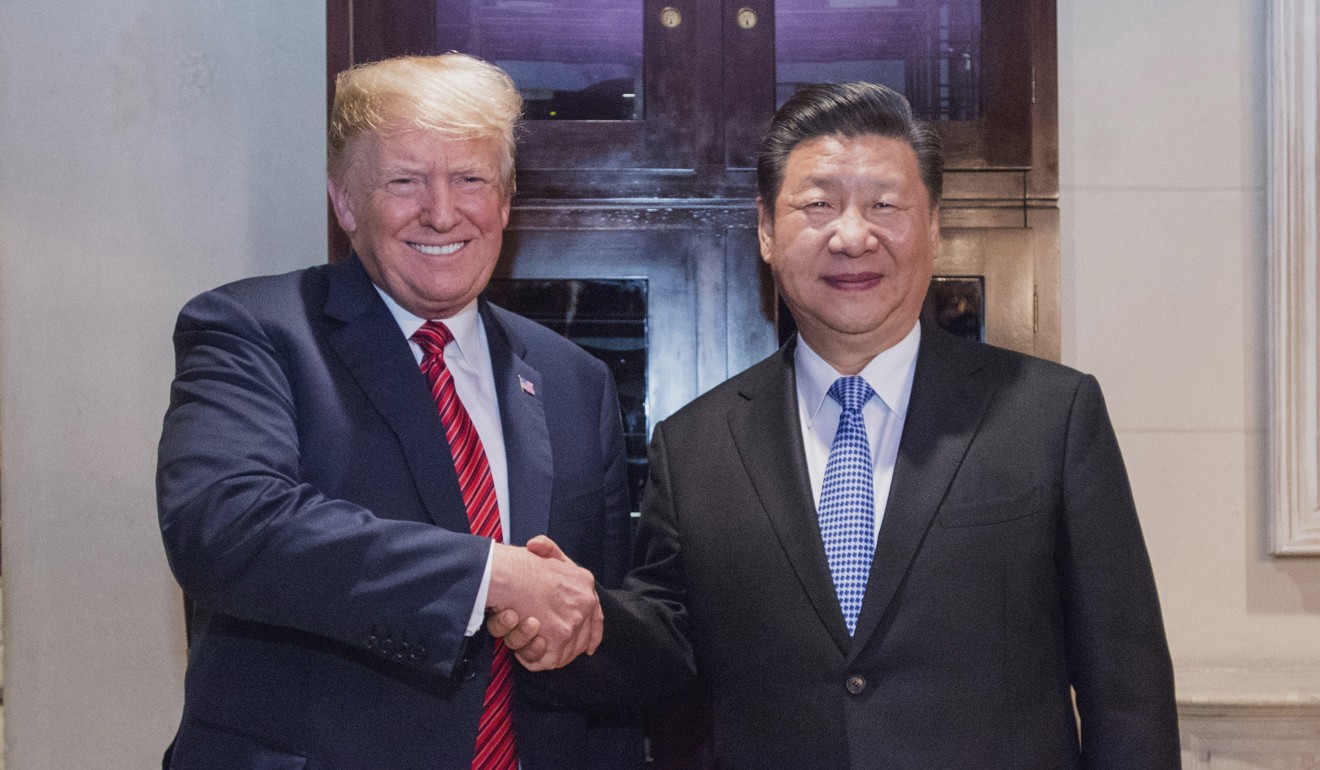US-China trade deal ‘could well happen’, Donald Trump says, but there may be a catch
- Despite progress made in Beijing, US negotiators want China to agree to regular check-ups on reforms and shorter timelines for rectifying trade imbalance, reports say
- Chinese Vice-Premier Liu He set to hold two days of talks in Washington at end of month

US President Donald Trump said that positive progress has been made towards a trade deal with China amid media reports that US negotiators are insisting Beijing agrees to regular check-ups on its reforms and shorter timelines for rectifying the trade imbalance.
Following vice-ministerial level talks in Beijing earlier this month, Trump said on Saturday that a deal “could very well happen” after a “very extraordinary number of meetings”, though he denied reports that US tariffs on Chinese products might soon be lifted.
“If we make a deal, certainly we would not have sanctions and if we don’t make a deal, we will,” he said. “It’s going well. I would say about as well as it could possibly go.”
His comments came ahead of Chinese Vice-Premier Liu He’s trip to Washington on January 30 and 31, where he is expected to meet US Trade Representative Robert Lighthizer and US Treasury Secretary Steven Mnuchin for top level talks.
The two countries are more than halfway through a 90-day tariff truce – brokered by Trump and Chinese President Xi Jinping at the start of December – but tariffs remain in place on billions of dollars worth of goods on both sides. And the US has said it will go ahead with raising duties to 25 per cent from 10 per cent on US$200 billion worth of Chinese goods if an agreement is not reached.
While the upcoming negotiations are a positive step, the world’s two largest economies still have many structural economic issues to untangle before they can resolve their differences.
Besides China’s yawning trade surplus with the US, which observers have said will be difficult to tackle, there are stickier conflicts over market access, intellectual property protection, cyber theft, and state-backed industrial policies and subsidies for Chinese firms in key sectors.
In an interview with Fox Business on Saturday, White House economic adviser and director of the National Economic Council Larry Kudlow played down reports of a breakthrough.
“We’ve made some progress with China in the deputy’s meeting in Beijing … [but] nothing has been resolved, nothing on paper, no contracts,” he said.
Responding to a question about Liu’s trip to Washington, China’s foreign ministry spokesperson Hua Chunying said last week that both sides were “making positive efforts” to reach an agreement that would be “mutually beneficial”.
During the vice-minister level talks in Beijing from January 7 to 9, China offered to buy more than US$1 trillion worth of American goods over a six-year period to eliminate the trade surplus, which reached US$323 billion last year, Bloomberg reported, citing unidentified sources.
But their US counterparts were sceptical of the offer, pushing for the trade gap to be closed within the next two years, the report said.
The Chinese proposal suggested an incremental approach to increasing US imports, raising the annual total by US$45 billion to US$200 billion this year and onwards to US$600 billion by 2024, it said.

At last month’s meeting between Xi and Trump, China agreed to buy a “not yet agreed upon, but very substantial amount” of agricultural, industrial and energy products from the US, according to a White House statement about the talks.
Reuters reported at the time that the US was pushing for regular compliance reviews of China’s trade pledges, with the spectre of tariffs as punishment for violating its commitments. While China did not welcome the proposal, it did not “derail” the talks, the report cited sources as saying.
“It looks like humiliation, but perhaps the two sides could find a way to save face for the Chinese government,” a Chinese source said.

After the latest negotiations, the Office of the US Trade Representative (USTR) said that officials had discussed “the need for any agreement to provide for complete implementation subject to ongoing verification and effective enforcement”.
While observers said such a mechanism would be difficult to implement, the threat of tariffs would be necessary to ensure China followed through on its pledges, as it had violated trade commitments before.
China’s commerce ministry spokesman Gao Feng said earlier that China believed an implementation mechanism was important but that “both sides have responsibility” for it.
The upcoming trade talks in Washington may also be hampered by domestic issues. The USTR said on Monday that it had run out of funds as a result of the US government shutdown, and would operate with only about 30 per cent of its full-time employees.
Additional reporting by Associated Press